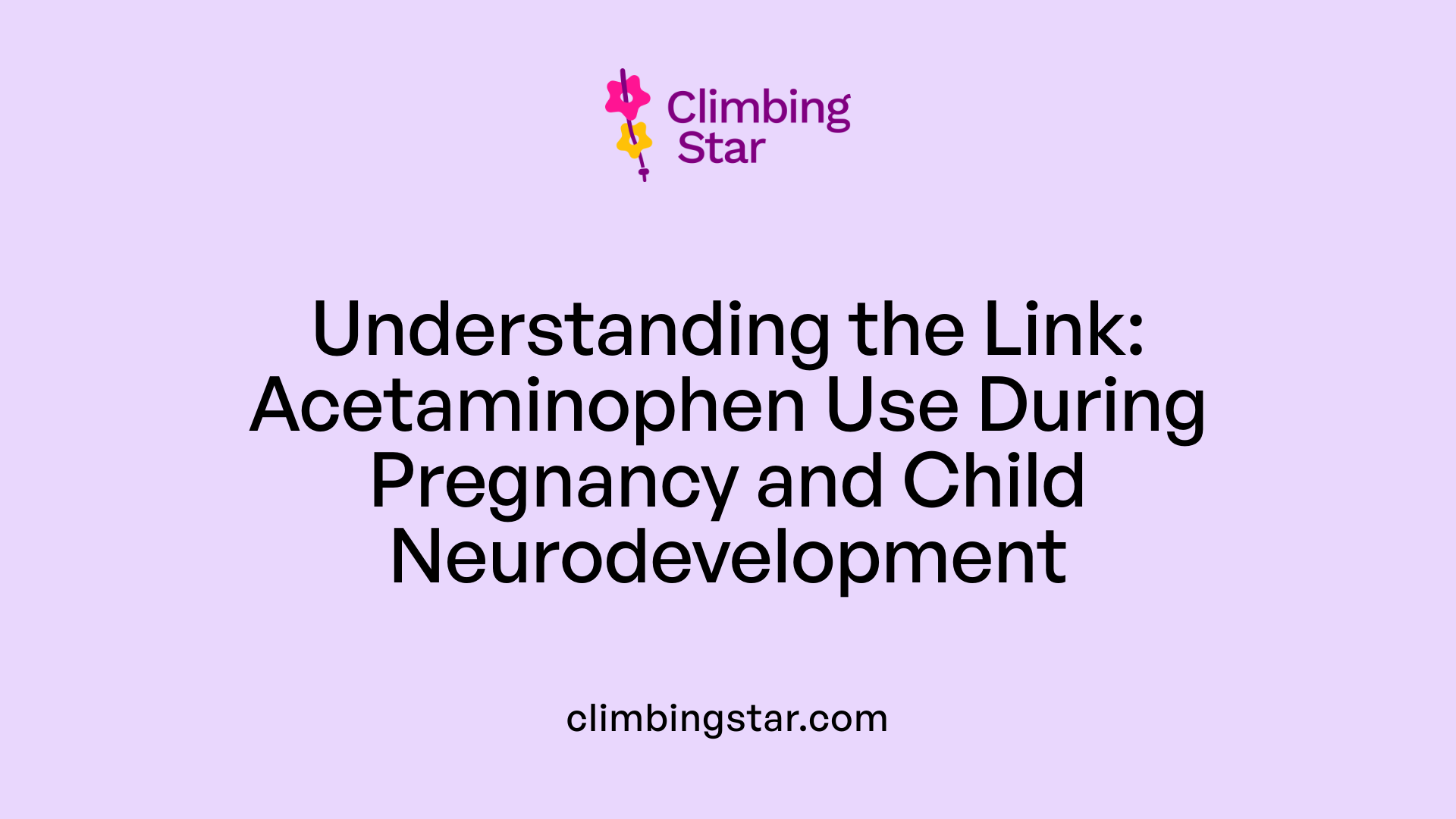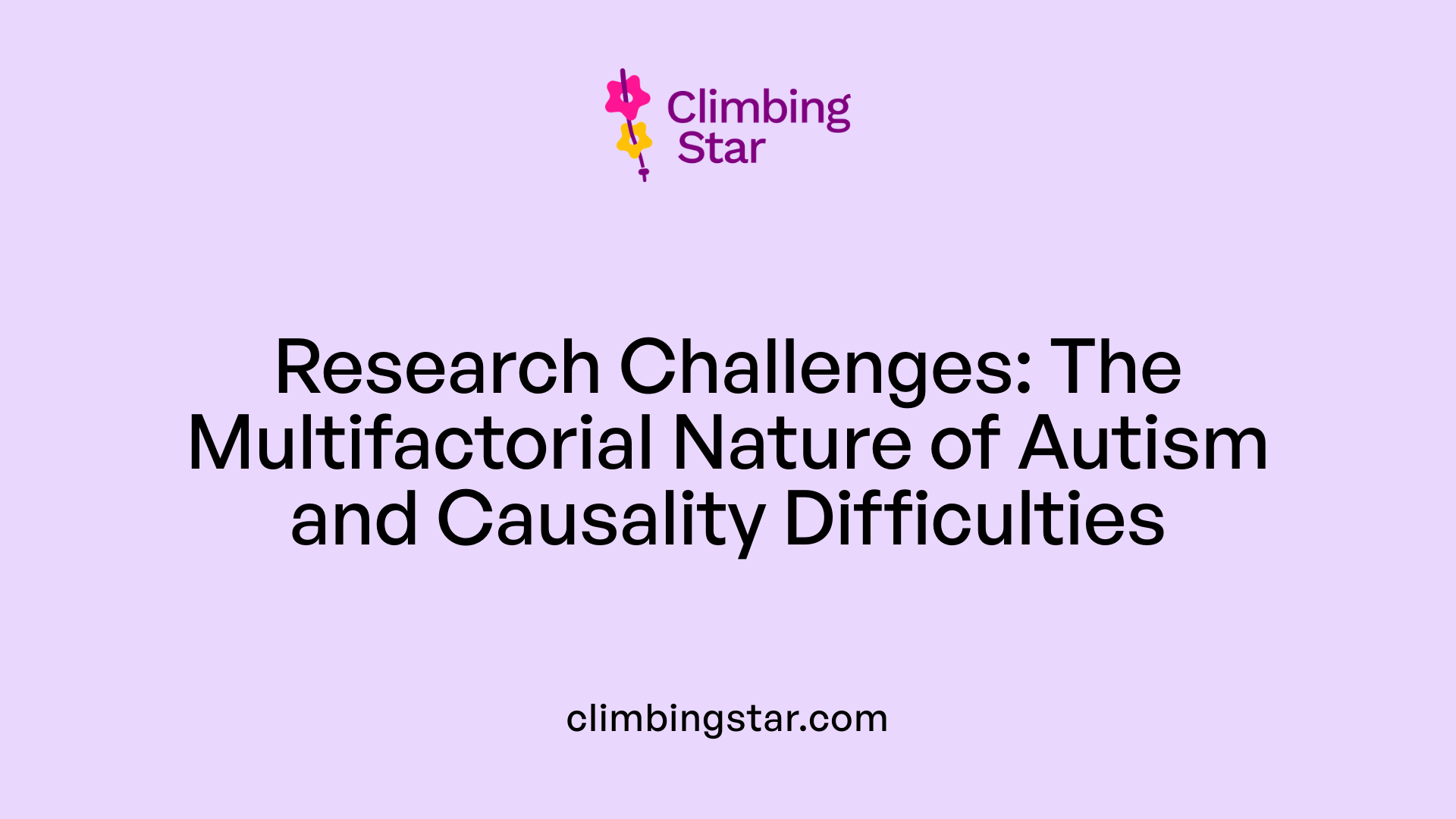Understanding the Tylenol Autism Lawsuit Controversy
Recent years have seen a surge of legal actions and scientific investigations focusing on potential links between prenatal exposure to acetaminophen (commonly known as Tylenol) and the development of autism spectrum disorder (ASD) and attention deficit hyperactivity disorder (ADHD) in children. This article delves into the scientific research, legal developments, and behavioral therapy context surrounding these issues to provide a comprehensive view of the ongoing Tylenol Autism Lawsuit and what it means for affected families and healthcare providers.
Scientific Research on Acetaminophen and Neurodevelopmental Disorders

What is the current state of scientific knowledge about acetaminophen use during pregnancy and autism?
Current research, including studies led by experts such as Dr. Zeyan Liew from Yale School of Public Health, explores the association between acetaminophen use during pregnancy and neurodevelopmental disorders like autism spectrum disorder (ASD) and attention deficit hyperactivity disorder (ADHD). Observational studies have observed an increased risk—such as a 34% increase for ADHD and 19% for ASD—in children born to mothers who frequently used acetaminophen while pregnant. However, these studies do not establish a direct cause-and-effect relationship.
Observational studies linking acetaminophen to ASD and ADHD
Several large-scale observational studies have linked prenatal acetaminophen exposure to a higher likelihood of neurodevelopmental disorders. For example, research published in the American Journal of Epidemiology and funded by the National Institutes of Health found that children with higher levels of acetaminophen in umbilical cord blood were more prone to ADHD and ASD diagnoses. Despite these associations, other maternal factors such as illness during pregnancy or genetic predispositions may also play significant roles.
The role of maternal health and genetics in research
Researchers acknowledge that autism is a multifactorial condition with no single identified cause. Studies consider a variety of influences including maternal health behaviors, genetics, and family history when assessing the impact of acetaminophen use. This comprehensive approach reflects the complexity of neurodevelopmental disorders and the challenges in isolating the effects of one medication.
While ongoing research is important, current findings emphasize the need for pregnant women to consult healthcare providers before using acetaminophen and to carefully weigh potential risks and benefits. Overall, scientific understanding continues to evolve, but no conclusive evidence mandates changes to recommended medical guidance regarding acetaminophen during pregnancy.
Key Studies Linking Acetaminophen Use to Autism and ADHD

What major studies have reported links between prenatal acetaminophen exposure and neurodevelopmental disorders in children?
Several influential studies have explored the relationship between acetaminophen use during pregnancy and neurodevelopmental outcomes such as autism spectrum disorder (ASD) and attention deficit hyperactivity disorder (ADHD).
One of the most significant findings comes from a notable observational study published in the American Journal of Epidemiology. This research observed that children born to mothers who used acetaminophen while pregnant exhibited a 34% increased risk of developing ADHD and a 19% increased risk of ASD compared to those without such exposure.
Further supporting this, researchers at Johns Hopkins conducted an analysis measuring acetaminophen levels in umbilical cord blood. Their study found that higher prenatal acetaminophen exposure corresponded with a greater likelihood of children receiving diagnoses of ADHD or ASD. This biological marker adds a layer of evidence by directly linking in utero exposure to neurodevelopmental risk.
Recent publications highlight these quantified risks, underscoring concerns related to frequent or prolonged acetaminophen use during pregnancy. While these associations are compelling, experts emphasize that these findings do not establish a direct causal relationship due to potential confounding factors such as maternal illness, genetics, and environmental influences.
Table 1 below summarizes the main study outcomes:
| Study | Population | Findings | Details |
|---|---|---|---|
| American Journal of Epidemiology | Pregnant women and their children | 34% increased risk of ADHD; 19% increased risk of ASD | Observational design; acetaminophen use self-reported during pregnancy |
| Johns Hopkins University | Umbilical cord blood samples and follow-up | Higher acetaminophen levels associated with greater ADHD/ASD diagnoses | Biological measurement of exposure adds robustness |
These studies contribute valuable insights into the ongoing investigation of how prenatal acetaminophen use may influence child neurodevelopment, reinforcing the need for cautious use and continued research.
Expert Perspectives on Acetaminophen Use During Pregnancy

What do healthcare professionals recommend regarding acetaminophen use for pregnant women?
Healthcare providers generally urge pregnant women to seek medical advice before taking any pain relief medication. Acetaminophen is commonly preferred for managing pain and fever during pregnancy because it is considered safer than alternatives like ibuprofen, which is typically discouraged, particularly after 20 weeks of gestation due to potential risks to the fetus.
Clinicians emphasize the importance of using medications thoughtfully, advising that acetaminophen should be taken at the lowest effective dose and for the shortest duration necessary. This cautious approach aims to balance symptom relief with minimizing any potential risks to neurodevelopment.
Since pregnancy pain management requires considering multiple factors—including maternal health status, the severity of symptoms, and individual risk profiles—consultations with healthcare professionals ensure personalized care decisions. This prudent strategy aligns with evolving research and regulatory perspectives while prioritizing both maternal and fetal well-being.
The Complexity of Autism's Causes and Research Challenges

Why is it difficult to establish a clear cause of autism related to acetaminophen use during pregnancy?
Autism is a complex neurodevelopmental disorder influenced by a combination of genetic, environmental, and biological factors. Family history and maternal health play significant roles in its development, making it challenging to isolate a single cause.
Research, such as that led by Dr. Zeyan Liew at the Yale School of Public Health, highlights that while observational studies have found associations between prenatal acetaminophen exposure and increased risks of autism spectrum disorder (ASD) and ADHD, these studies cannot confirm a direct causal link. The difficulty stems from confounding variables like maternal illness, genetic predispositions, and behaviors that might impact outcomes.
Observational studies are limited by their design; they can identify correlations but not causation. This means that even if children born to mothers who took acetaminophen show higher rates of neurodevelopmental disorders, other underlying factors might explain these findings. Autism’s multifactorial nature means that no single factor, including acetaminophen use, is solely responsible for its development.
Therefore, ongoing research continues to explore these complex interactions and encourages cautious interpretation of current findings. Pregnant women are advised to consult healthcare providers for pain management, considering the benefits and potential risks of any medication.
| Factor | Role in Autism Development | Research Implications |
|---|---|---|
| Genetics | Significant contributor; family history increases risk | Must be accounted for in studies |
| Maternal Health | Maternal illness or behaviors can influence fetal development | Confounds associations with medication use |
| Environmental | Includes medications, exposures during pregnancy | Requires careful study design to separate effects |
| Observational Studies | Can suggest associations but not prove causality | Findings need cautious interpretation |
The Emergence of Legal Actions: Tylenol and Autism Lawsuits

What are the main allegations in the lawsuits involving Tylenol and autism?
Lawsuits involving Tylenol and autism primarily center around allegations that the manufacturers of acetaminophen, commonly known as Tylenol, were aware or should have been aware of the potential risks linking prenatal acetaminophen use to autism spectrum disorder (ASD) and attention deficit hyperactivity disorder (ADHD) but failed to provide adequate warnings to consumers.
Overview of lawsuits alleging manufacturer negligence
Several lawsuits have been filed by mothers who used acetaminophen during pregnancy and whose children were later diagnosed with neurodevelopmental disorders such as autism and ADHD. These plaintiffs claim that the lack of warnings about potential risks constitutes manufacturer negligence, alleging that proper caution was not taken to inform pregnant women of the possible consequences associated with regular or prolonged use of acetaminophen.
Examples of notable cases such as Rutledge v. Walmart
A prominent example is the Rutledge v. Walmart case, where the mother took acetaminophen throughout her pregnancies, and her children were subsequently diagnosed with ADHD and autism. This case highlights the personal and legal struggles families face when seeking accountability from large manufacturers and retailers.
These legal actions reflect a growing concern over the safety of prenatal acetaminophen use, even as scientific research continues to explore these associations without definitive causal conclusions. Manufacturers and regulatory bodies like the FDA have responded by issuing warnings and working to update labeling to better inform consumers, especially pregnant women, about potential risks.
For individuals interested in the details or considering legal action, consulting both medical and legal professionals is strongly advised to understand eligibility and the complexities involved.
Regulatory Responses to Acetaminophen Risks During Pregnancy
How have regulatory agencies responded to concerns about acetaminophen use in pregnancy?
The U.S. Food and Drug Administration (FDA) has taken significant steps to address emerging research that suggests potential risks associated with regular acetaminophen use during pregnancy. Recognizing observational studies linking prenatal acetaminophen exposure with increased chances of neurodevelopmental disorders such as autism spectrum disorder (ASD) and attention-deficit/hyperactivity disorder (ADHD), the FDA has issued warnings to raise awareness among consumers and healthcare providers.
In response, the FDA announced plans to update the labeling on Tylenol, the most common acetaminophen product, to include explicit information about these potential risks. This labeling update aims to guide pregnant women to use the medication cautiously, emphasizing the importance of the lowest effective dose for the shortest duration necessary.
Public Health Communication Challenges
Communicating risk is complex, especially when causality has not been firmly established. The FDA's approach carefully balances informing the public without causing undue alarm, acknowledging that current evidence largely comes from observational studies rather than definitive causal trials. This nuanced messaging highlights the necessity of consulting healthcare professionals when managing pain during pregnancy.
Impact on Consumer Awareness
These regulatory efforts have increased consumer awareness of possible concerns with acetaminophen use in pregnancy. Pregnant women are encouraged to discuss pain management options with their doctors, considering alternatives only when recommended, and carefully weighing benefits against potential risks. The updated label is expected to empower consumers to make informed choices and foster safer medication practices among expectant mothers.
Legal Progress and Current Status of Tylenol Litigation
What is the current status of the federal Tylenol autism lawsuits?
As of October 2025, the federal multidistrict litigation (MDL) concerning claims that Tylenol use during pregnancy causes autism and ADHD has encountered significant legal challenges. A notable development was a summary judgment ruling in favor of the defendants, effectively dismissing numerous claims in the federal MDL. Despite this ruling, appeals against the judgment are active, indicating that the federal legal battle is far from over.
Ongoing State-Level Lawsuits Amid Federal Setbacks
While federal cases face hurdles, numerous lawsuits continue independently in state courts. These cases often pertain to specific claims such as those seen in the Rutledge v. Walmart case, where plaintiffs allege lifelong neurodevelopmental impacts linked to prenatal acetaminophen exposure. The state-level litigation reflects a broader and more fragmented legal response to these health concerns.
Complex and Evolving Legal Landscape
The Tylenol litigation landscape is marked by its complexity and ongoing nature. Plaintiffs are advised to consult both medical and legal experts to understand their eligibility and the nuances of their cases. As the legal processes unfold, these lawsuits remain closely watched, as they could influence labeling changes and consumer guidance on the use of acetaminophen during pregnancy.
Importance of Consulting Medical and Legal Experts
Why is it important for individuals concerned about Tylenol-related autism risks to consult experts?
The connection between prenatal acetaminophen use and neurodevelopmental outcomes like autism and ADHD is still being studied, with no conclusive proof of causality. This complexity makes expert consultation essential for families worried about these risks. Medical professionals can offer personalized evaluations based on maternal health, genetics, and other factors, helping to clarify potential risks and appropriate pain management during pregnancy.
Legal experts also play a critical role for families considering lawsuits. With ongoing multidistrict litigation and individual state cases concerning Tylenol and autism, understanding eligibility criteria and the legal process is complicated. Legal counsel can help navigate claims, explain evidence standards, and advocate for affected individuals' rights.
Together, medical and legal advice provides comprehensive support. This multidisciplinary guidance ensures that families understand their health choices and potential legal remedies, empowering them to make informed decisions regarding treatments and possible compensation.
Guidance for Affected Families Considering Lawsuits
- Evaluate personal medical history and pregnancy medication use with healthcare providers.
- Seek detailed legal consultations to explore case viability.
- Stay informed of updates in scientific research and legal rulings.
Role of Medical Advice in Understanding Risks
- Assess individual risk factors connected to neurodevelopmental disorders.
- Balance pain management needs with potential impacts on the fetus.
- Recommend safest medication use practices during pregnancy.
Navigating Eligibility and Legal Processes
- Identify relevant lawsuits and ongoing legal actions.
- Gather documentation of acetaminophen use and diagnoses.
- Understand timelines, claims, and possible outcomes.
By combining medical insight and legal expertise, individuals affected by concerns around Tylenol and developmental disorders can better manage health risks and seek justice when appropriate.
Applied Behavior Analysis (ABA) Therapy: Definition and Purpose
What is Applied Behavior Analysis (ABA) therapy and how is it used to support individuals with autism?
ABA therapy is a scientifically based approach used to enhance skills and reduce challenging behaviors in individuals with autism. It applies principles from learning theory to improve social interaction, communication, and everyday living skills.
What role does ABA therapy play in autism support?
ABA is widely recognized as an effective treatment for autism spectrum disorder (ASD). It helps individuals develop positive behaviors such as language use and social engagement while addressing behaviors that interfere with learning or social interaction.
What behavioral improvements does ABA therapy target?
The therapy focuses on increasing helpful skills and decreasing behaviors that may be harmful or impede progress. This can include teaching communication methods, enhancing social skills, improving academic performance, and managing behaviors like aggression or self-injury.
ABA therapy is customized to each individual's needs, with goals tailored toward enhancing quality of life. Techniques include positive reinforcement, shaping, and continuous assessment to adapt interventions, making ABA a key part of autism support.
Qualifications and Roles of ABA Therapy Providers
Who typically provides ABA therapy and what qualifications do they have?
ABA therapy is delivered by a variety of professionals, with the most recognized being licensed behavior analysts. The Board Certified Behavior Analyst (BCBA) credential is a standard certification that these providers often hold. To become a BCBA, individuals usually complete a master's degree in fields related to behavior analysis, psychology, or education.
Educational paths and skills required
Achieving certification also requires completing supervised fieldwork, which provides hands-on experience in applying behavioral interventions. This supervised training ensures that providers develop the skills needed to design and implement individualized ABA programs effectively.
ABA therapy providers use evidence-based approaches tailored to the unique needs of each client, often collaborating with families, educators, and other healthcare professionals. Besides BCBAs, ABA therapy may also be delivered by trained ABA therapists or technicians who work under the supervision of certified analysts.
By meeting these educational and certification standards, ABA therapy providers ensure they deliver scientifically backed interventions aimed at improving developmental and behavioral outcomes for individuals with autism spectrum disorder and other needs.
Goals and Techniques in Behavioral Analysis for Autism
What are the main goals and techniques used in behavioral analysis for autism therapy?
Behavioral analysis in autism therapy primarily focuses on improving communication, social interactions, self-care abilities, academic skills, and play behaviors. Simultaneously, it works to reduce challenges such as disruptive or harmful behaviors.
Several techniques are central to this therapy approach:
- Positive Reinforcement: Rewarding desired behaviors to encourage their recurrence.
- Discrete Trial Training (DTT): Breaking skills into small, teachable steps with clear prompts and rewards.
- Modeling: Demonstrating behaviors for the individual to imitate.
- Shaping: Gradually reinforcing successive approximations toward a target behavior.
- Functional Behavior Assessments (FBA): Identifying the reasons behind behaviors to develop effective interventions.
An essential aspect of behavioral analysis is individualization. Each program is tailored to the person's unique strengths, challenges, and developmental pace. Continuous monitoring allows therapists to adjust strategies and goals over time, ensuring the intervention remains effective and responsive to change.
This personalized and technique-rich approach helps many individuals with autism achieve meaningful improvements in daily functioning and quality of life.
Effectiveness of ABA Therapy in Autism Outcomes
How effective is ABA therapy in improving outcomes for individuals with autism?
Applied Behavior Analysis (ABA) therapy is widely recognized for its effectiveness in supporting individuals with autism spectrum disorder (ASD). Research demonstrates that ABA can significantly enhance communication skills, social interactions, daily living abilities, and reduce behavioral challenges. These improvements are often most pronounced when therapy begins early in childhood and is tailored to the unique needs of the individual.
Research on ABA efficacy
Numerous studies back the positive impacts of ABA therapy. It is considered an evidence-based intervention due to its systematic approach and measurable results. The therapy focuses on reinforcing desirable behaviors and reducing problematic ones through structured techniques and consistent reinforcement.
Areas of improvement
ABA therapy primarily helps in the following domains:
- Communication: Enhances verbal and non-verbal interaction skills.
- Social skills: Promotes appropriate social engagement and understanding of social cues.
- Daily living: Supports independence through skill-building in self-care and routine activities.
- Behavioral management: Reduces instances of challenging behavior by teaching alternative coping strategies.
Variability of outcomes
Outcomes can vary depending on several factors, including the individual's age at start of therapy, the intensity and quality of services, underlying cognitive or medical conditions, and family involvement. Such variability underscores the importance of customizing ABA programs to each person's strengths and challenges.
By combining these elements, ABA therapy remains one of the most effective and flexible interventions available for improving the quality of life of those with autism.
Contextualizing ABA Therapy within the Tylenol Autism Lawsuit Narrative
How does ABA therapy relate to families affected by autism potentially linked to prenatal acetaminophen exposure?
Families of children diagnosed with autism spectrum disorder (ASD), which in some cases may be associated with prenatal acetaminophen (Tylenol) exposure, often seek effective treatments to support their children's development. Applied Behavior Analysis (ABA) therapy is a widely recognized and evidence-based intervention that helps improve various skills including communication, social interactions, and daily functioning.
Navigating an autism diagnosis can be overwhelming, especially when parents suspect environmental or prenatal factors like medication use during pregnancy may have contributed. Regardless of the cause, early intervention is critical. ABA therapy is typically recommended soon after diagnosis to maximize benefits by targeting behaviors early on when the brain is most adaptable.
Families often work with multidisciplinary teams including pediatricians, psychologists, and therapists to tailor ABA programs that meet their child's unique needs. This approach enhances developmental outcomes and quality of life, emphasizing progress over the underlying diagnosis.
In the context of the ongoing Tylenol autism lawsuits, parents may be motivated to pursue therapy not only for symptom management but also to provide legal and medical experts with documented evidence of their child’s developmental challenges and progress over time. Early behavioral treatments like ABA remain central to supporting children regardless of the origins of their ASD.
| Aspect | Description | Significance |
|---|---|---|
| ABA Therapy | Evidence-based behavioral treatment focused on skill-building and behavior modification | Supports developmental gains in children with ASD |
| Families' Role | Navigating diagnosis, treatment decisions, and potential legal action | Helps optimize child outcomes and address concerns about prenatal exposure |
| Early Intervention | Starting therapies soon after diagnosis | Critical for improving functional outcomes and quality of life |
The Impact of Lawsuits on Public Awareness and Healthcare Practices
How have lawsuits regarding Tylenol and autism influenced public and medical perspectives?
Lawsuits related to Tylenol and its potential links to autism and ADHD have significantly increased public awareness of medication safety during pregnancy. These legal cases have shone a spotlight on the need for cautious use of acetaminophen by pregnant women. Healthcare providers are now more vigilant in prescribing and advising on pain relief options, often emphasizing the importance of using the lowest effective dose for the shortest duration.
This increased scrutiny has prompted healthcare professionals to improve patient education. Expectant mothers are encouraged to consult medical experts before taking any medication and to weigh benefits against possible risks carefully. The heightened public and medical attention has also accelerated regulatory updates, such as the FDA's efforts to revise Tylenol labeling to include potential neurodevelopmental risks.
Overall, these lawsuits have fostered a more informed dialogue between patients and providers about safe pain management in pregnancy, underscoring the complex factors influencing neurodevelopmental outcomes.
Future Directions in Research and Legal Proceedings
What can be expected in the future regarding research and legal actions on Tylenol and autism?
Ongoing research efforts, led by experts like Dr. Zeyan Liew at Yale School of Public Health, are focused on establishing clearer evidence regarding the causal link between acetaminophen use during pregnancy and neurodevelopmental disorders like autism and ADHD. These studies aim to move beyond observational associations by employing rigorous prospective designs that consider confounding factors such as genetics, maternal health, and environmental influences.
From a regulatory perspective, the FDA has already issued warnings to update Tylenol's labeling to reflect potential risks when used regularly during pregnancy. This signals a growing recognition of these concerns, which may lead to stricter guidance for pregnant women and healthcare providers on pain management strategies.
Legal proceedings are also evolving. The federal multidistrict litigation (MDL) over Tylenol and autism has witnessed setbacks for plaintiffs but continues to proceed through appeals and parallel lawsuits in state courts, such as the prominent Rutledge v. Walmart case. These legal actions highlight ongoing debates about manufacturers' responsibilities and the adequacy of warnings to consumers.
Collectively, advances in research, updates in regulatory policies, and developments in litigation will influence how medical guidance is issued and how liability is assessed concerning acetaminophen use during pregnancy. Pregnant women are advised to stay informed through medical consultation and remain aware of these evolving recommendations and legal updates.
| Aspect | Current Status | Potential Future Impact |
|---|---|---|
| Research | Observational studies with mixed results | More definitive, causal studies |
| Regulatory | FDA warnings and updated labeling planned | Stricter labeling and usage guidelines |
| Medical Guidance | Use at lowest effective dose; consult healthcare provider | Possible more cautious recommendations for pregnant women |
| Litigation | MDL ongoing with mixed outcomes; state lawsuits active | Continued legal scrutiny; possible settlements or new rulings |
Moving Forward Amid Scientific, Legal, and Therapeutic Complexities
The intersection of scientific investigation, legal battles, and therapeutic interventions highlights the complexity of addressing potential neurodevelopmental risks linked to acetaminophen use during pregnancy. While definitive causal evidence remains elusive, families affected by autism are supported by established therapies like Applied Behavior Analysis (ABA), which can significantly improve developmental outcomes. Continued research, vigilant regulatory actions, and balanced medical advice are essential to navigate these uncertainties and empower families with knowledge and effective care options. Legal processes may evolve as science advances, but the priority remains ensuring safety, informed choices, and support for individuals living with autism.
References
- What the research says about autism and acetaminophen use ...
- Tylenol ADHD & Autism Lawsuits
- Applied Behavior Analysis (ABA)
- How to Become an ABA Therapist - School of Education
- The effectiveness of applied behavior analysis program ...
- Applied Behavior Analysis (ABA)
- Efficacy of Interventions Based on Applied Behavior ...
- The Controversy Around ABA






